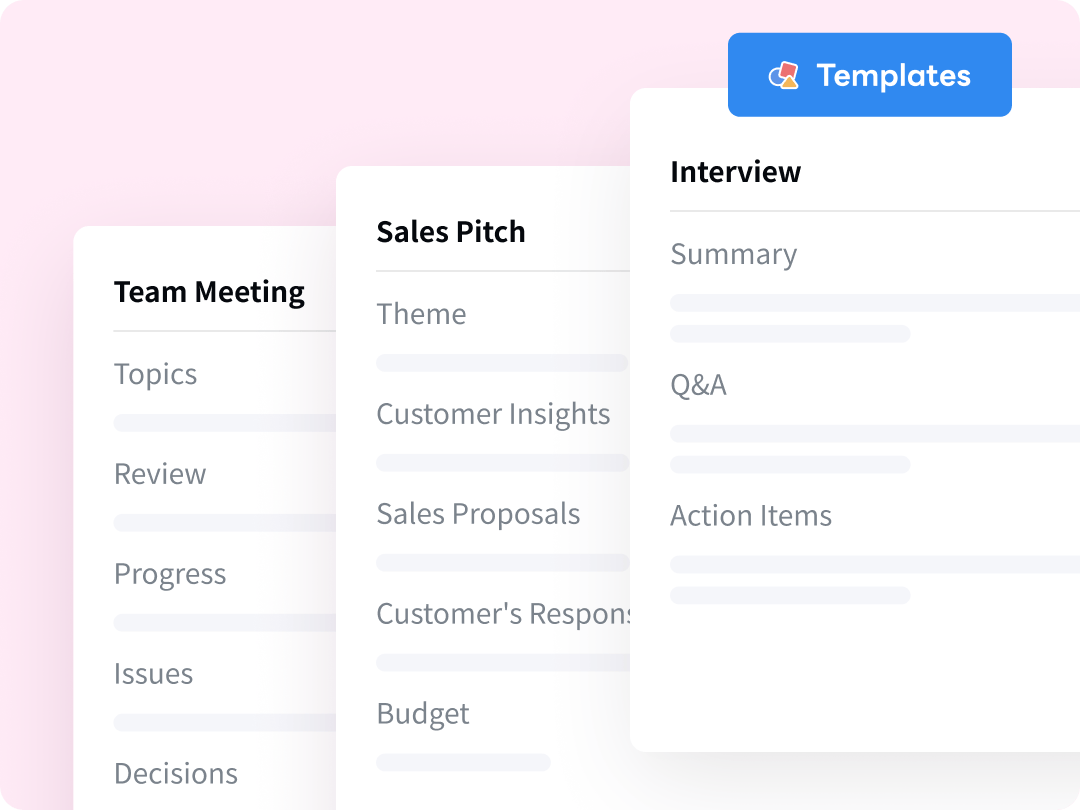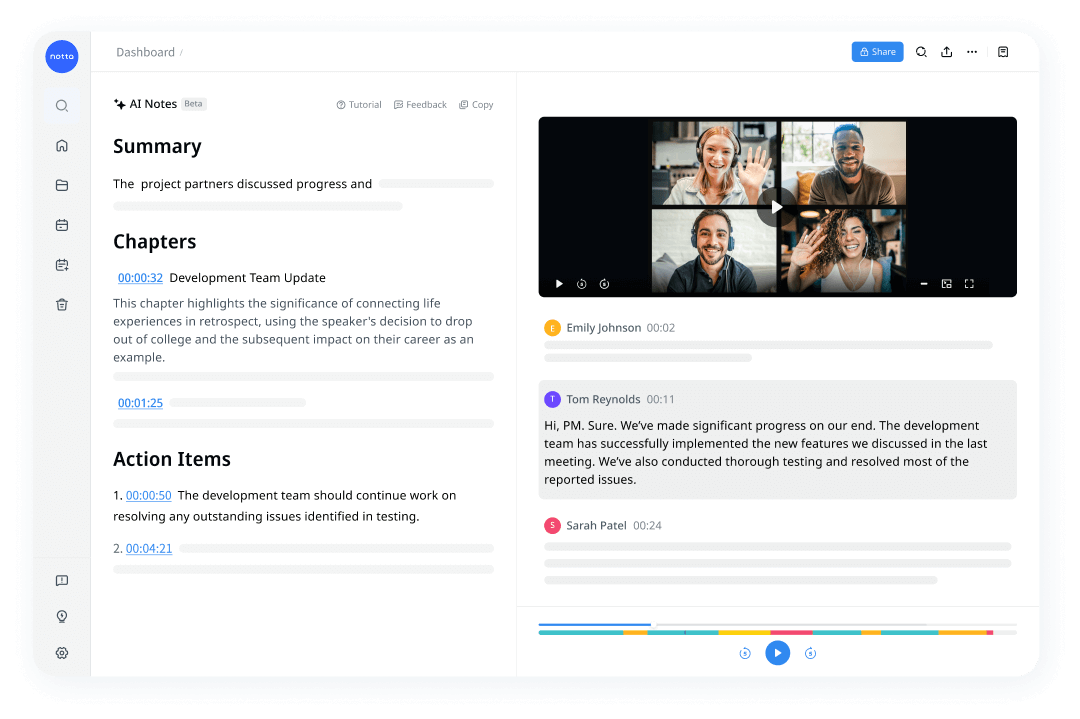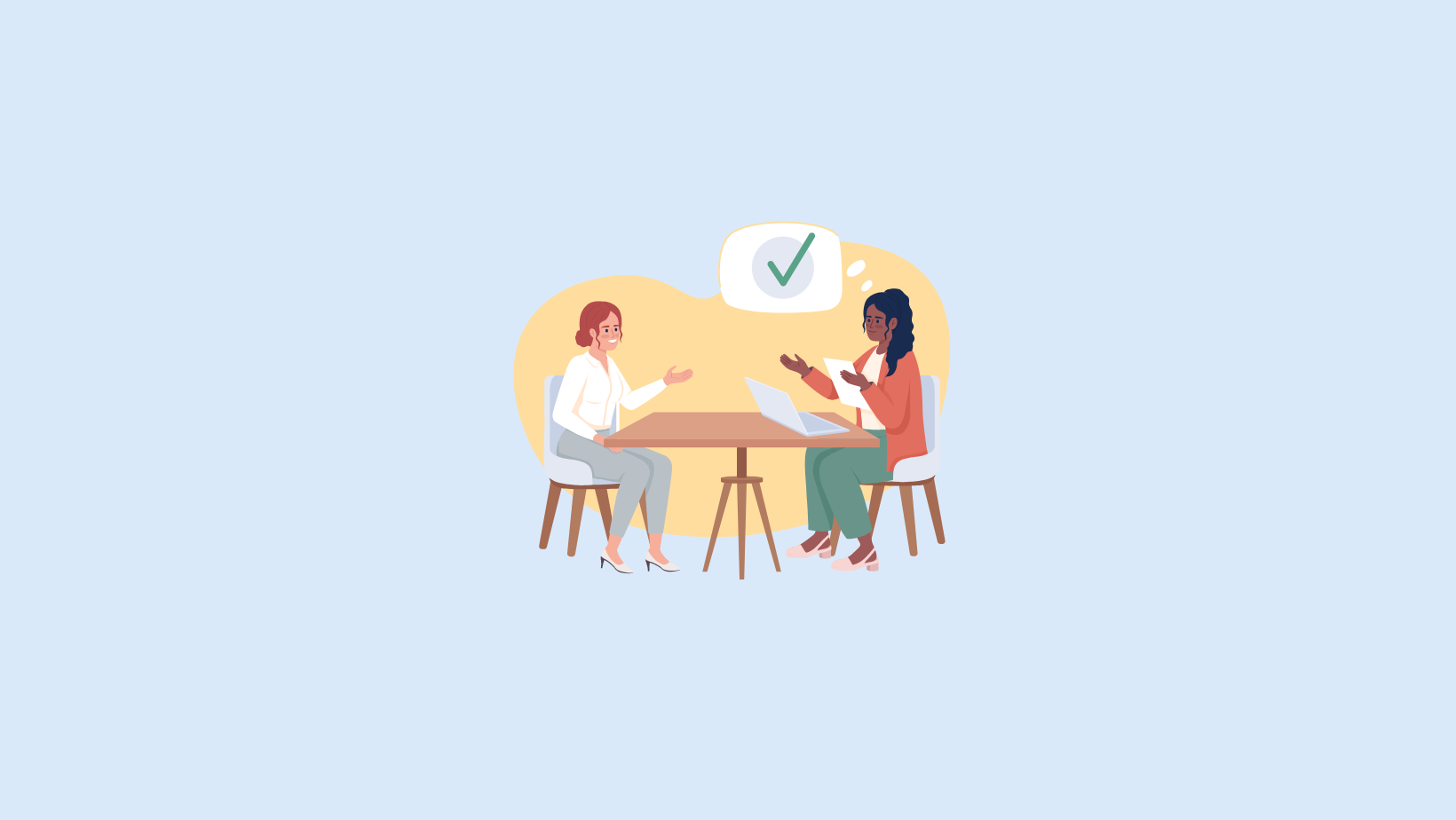I've always known interviews were a major struggle for me. The same goes for many people who apply for a certain position in a company. If you've done the job of giving close-to-perfect answers in the interview and impressed the recruiting team, you might be wondering what's next.
Instead of sitting back and relaxing, you'll need to craft a follow-up email after the interview to increase your chances of being selected. If you've found an awesome role at a fantastic company, here's how to write a follow-up email after an interview, when to send it, and some examples to get started right away.
Why follow up after an interview?
I've gotten to interview alongside the recruiting team a few times. And there's one thing I noticed: hiring managers and recruiters get busy too quickly. A follow-up email is one of the best ways to revive a dead application and get the job. If you're still unsure why you should send a follow-up email after an interview, here are some of the reasons:
Sometimes, you might get nervous when answering the questions during the interview. In the follow-up interview email, you can answer the questions in detail or clarify concerns that the interviewer might have.
A follow-up email shows you're interested in the opportunity and are ready to go the extra mile. It also proves that you're detail-oriented.
Often, hiring managers look for the quality of the thank-you notes or follow-up emails. Sending a follow-up email after an interview will give you some brownie points for getting the job.
When should you send a follow-up email after an interview?
Generally speaking, you should not wait longer than 24 - 48 hours to send a follow-up email after an interview. I’d recommend sending individual thank-you notes to every person on the recruiting team.
You can send an honest and positive thank-you note immediately after the interview. Most candidates should expect to hear back within a week or so. If you don't hear back within that time, you may consider sending another follow-up email.
How to write an email follow-up after an interview?
Your follow-up email should have a proper structure. It's important to include a thank you note and other information that might help the recruiter streamline the hiring process. If done well, it can increase your chances of getting hired.
I've written (and reviewed) 100+ follow-up emails in the past two years, and here's a framework to write an email follow-up after an interview:
1. Choose the right subject line
It's the first thing the hiring manager will see. A clear, concise, and to-the-point subject line will help the recruiter understand what to expect throughout the email body. At the same time, you'll need to personalize the subject line so the recruiter opens the email and reads what's written. One good subject line would be, ‘Thank you for your time and request for feedback.’
2. Personalize the greeting
You can either start your follow-up email with ‘Hello’ or ‘Good Morning.’ While the former is informal and relaxed, the latter sounds a little more formal. If you’re unsure which one to choose, you can always go with generic salutations such as Dear Mr/Ms. While many people start their emails with Sir or Madam, I would personally suggest avoiding this ‘too formal’ greeting.
3. Add a thank you note
Here comes the most important thing: You'll need to start the follow-up interview email by mentioning the job title for which you interviewed, along with a thank you statement. Your aim is to make this email part memorable for the interviewer. You can write something like this: ‘Thank you for taking the time to speak with me yesterday and share details about the graphic designer role.’
4. Remind them about the value you can bring
You don't have to write everything that was talked about during the interview in the follow-up email. Instead, you need to provide a quick summary and highlight your relevant skills. Don't go deep into explaining everything. Instead, keep it brief to respect the recruiter's time.

More quality video interviews, with Notta
Automatic scheduling, live meeting notes, and ready-to-use AI summary templates.
5. End with your contact details
At the end of the interview follow-up email, add a professional closing statement and provide the contact information. For example, you can include phone numbers, email addresses, and social media links (if necessary).
Interview follow-up email examples
Now that I've outlined the detailed framework for writing a follow-up email, here are some examples to help you get started right away. You can customize these follow-up email templates to create your own perfect email.
1. Follow-up email after interview
The key goal of a follow-up email is to thank the interviewer for their time and express that you're interested in joining the position. Here, I'll reveal a thank you email template you can send after the interview:
Subject: Follow up on [insert the position title] interview
Dear [insert the recruiter's name],
I hope you've had a great time. I wanted to thank you for taking the time out of your busy schedule and interviewing me for the [insert the job title]. It was a pleasure to learn about the [position] and [company].
I really feel like [insert some important skills that match the job requirement] would be a valuable asset because of the [job description]. I would love to answer any questions or resolve any concerns you may have about my qualifications!
Best Regards,
[Your Name]
[Contact Details]
2. Follow-up email after no response
If you haven't heard back from the interviewer after a week of your interview, you can send a follow-up email after no response. Here's what you can say:
Dear [insert interviewer's name],
I hope you're doing great.
I just wanted to check in to see if there are any updates on my interview conducted on [insert the date] regarding the [insert the position] role. I would like to know if there are any updates on the hiring process.
I am interested in joining the company as a [insert the role], as I believe my skills would align with your requirements.
If you have any additional questions or need any help from my end, feel free to drop me an email. Thank you for considering my application for the role, and I look forward to the next steps in the hiring process.
Best Regards,
[Your Name]
[Contact Details]
3. Follow-up email to stay in touch
If you want to establish a professional relationship with anyone you've communicated with during the hiring process, you can send them a follow-up interview email to stay in touch. Here's a sample email:
Hey [name of the person],
It was great to connect with you during the interview process for [insert the position]. I really loved your take on [insert what made you connect with them] and would like to stay in touch.
I would really appreciate it if we could connect for an informational virtual call next week. We could just have a virtual coffee or chat about what inspired you to become [insert their job role here].
Thank you for your time.
Best Regards,
[Your Name].
Tips for creating a follow-up email after an interview
Nearly 1 in 5 hiring managers are likely to reject a candidate if they do not send a follow-up email or simple thank you note after the interview. The same survey also reveals that 89% of hiring managers are more likely to accept candidates who send perfectly crafted follow-up mail. If you're wondering how to follow up after the interview, here are some more tips to follow:
Be honest: You should not lose your voice when writing a follow-up interview email. Your aim is to present yourself honestly to the recruiting team so you end up being in a workplace where you are accepted.
Be positive and professional: Regardless of the interview tone, your follow-up email should be positive and professional. Your tone of voice should show your excitement about joining the team.
Personalize the email: There's a lot of competition these days, with 100 people applying for 1 position. Personalized follow-up emails can help you stand out from the competition and impress the interviewer.
Keep it short and sweet: No recruiter on this Earth would love to read an entire page of flattery. I would highly recommend keeping each paragraph around 1-2 sentences.
Key takeaways
Remember, a perfectly crafted follow-up email is just like an icing on the cake. Whether your interview was good, decent, or not-so-good, a follow-up email after the interview can definitely increase your chances of success.
The recipe is simple: You need to make the subject line clear, write a short and brief email body, and end up with a thank you note. So, don't skip it, and use the template I've mentioned above to remind the manager how skilled you are.

FAQs
What to include in an interview follow-up email?
Your interview follow-up email should show your interest in the job position while leaving a lasting impression on the recruiting team. Some of the things you should definitely include in the follow-up email for a job interview are an email subject line, a thank you note to the interviewer, an inquiry about the current position, and contact details for the next steps.
How to write a second follow-up email after an interview?
The hiring managers generally get hundreds of emails, and they might not get enough time to check each email. If you haven't received a response from the recruiting company, it's always a wise idea to send a second follow-up email. Here's a sample:
Subject: Following up for any updates
Dear [name of the interviewer],
I hope you have had a great week. Thank you for taking the time to conduct the interview. It was great meeting you and discussing the opening at [company].
Since I have not heard back from the company, I would like to know if the position is still open. If so, would you please help me understand when I can expect to hear from you?
Feel free to let me know if there is anything that I can help you with to accelerate the decision-making process. I look forward to hearing from you soon!
Kind Regards,
[Your Name].
How many times should you follow up after an interview?
Generally, it is advisable to send two follow-up emails after an interview. You can send the first follow-up email within 24 - 48 hours of the interview. If you don't hear back anytime soon, you can consider reaching out again after a week.


